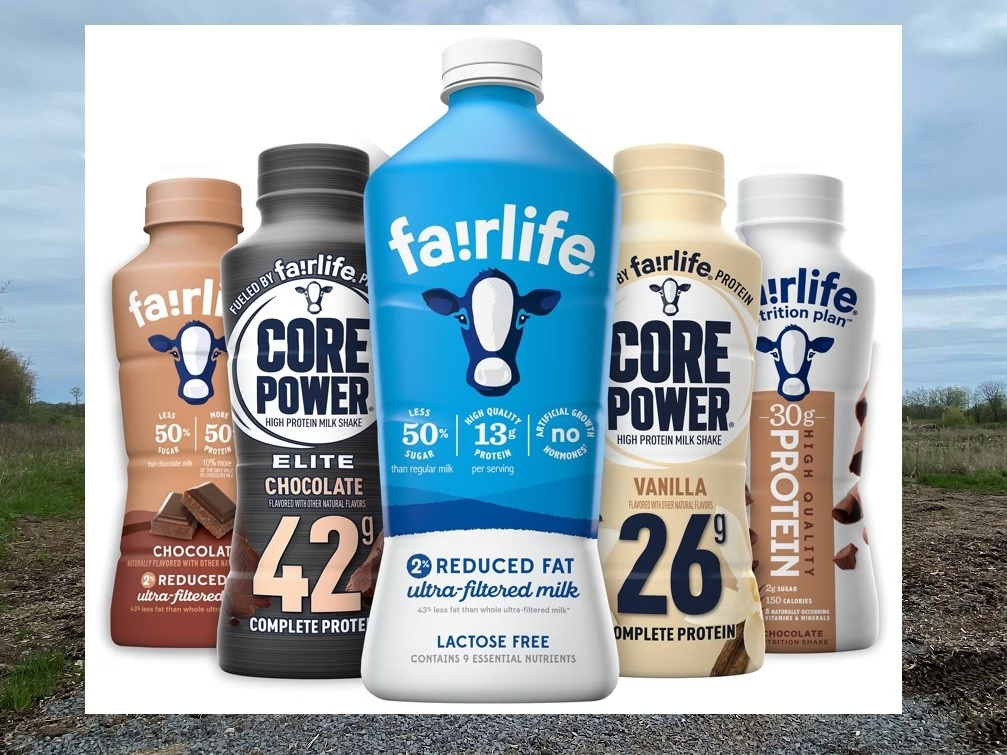Learn why some US consumers are wary of Fairlife’s unique milk filtration process. Is the “Frankenstein of milk” worth the higher cost? Find out more.

Imagine a milk bottle with 50% more protein, 30% more calcium, and half the sugar. Coca-Cola and Select Milk Producers created Fairlife in 2012. Fairlife separates and recombines milk components using a “proprietary filtering process,” including water, butterfat, protein, vitamins and minerals, and lactose. While some customers like these perks, others believe they are excessively changed. “Milk is seen as naturally healthy,” said Lianne van den Bos, a Euromonitor food expert. “Pulling it apart makes it less logical.” This highlights a critical issue: innovation vs customer perception. Fairlife’s reception will reveal if the market is ready for such changes or whether conventional attitudes will prevail.
Redefining Dairy: The Birth of Fairlife through Innovative Filtration
Fairlife, a joint venture between Coca-Cola and Select Milk Producers, was formed in December 2012 with a mission to innovate in the dairy business. This collaboration birthed a unique milk using a patented, proprietary filtering technique. The process disassembles whole milk into water, butterfat, protein, vitamins and minerals, and lactose, creating a lactose-free milk with 50% more protein, 30% more calcium, and half the sugar of conventional milk. This approach not only caters to customers with lactose sensitivity but also addresses the increasing demand for nutritionally enriched products. Fairlife’s identity is anchored in its superior filtering method, setting it apart from typical milk products as a healthful and inventive dairy choice.
Safety and Innovation: Evaluating Fairlife’s Proprietary Filtration Process
Fairlife’s patented filtering method conforms with FDA rules, guaranteeing that the milk is safe for consumption. This technique carried out using tight quality control methods, improves nutritional features by raising protein and calcium levels while decreasing sugar. This invention transforms Fairlife into a safe and nutritionally better alternative to regular milk.
Consumer Skepticism: Perceived Compromise of Milk’s Natural Qualities
Consumers are skeptical of Fairlife’s approach because they believe it damages the natural purity of milk. Lianne van den Bos, Euromonitor’s food analyst, emphasized this by adding, “The advantage with milk is that it is already seen as inherently beneficial for you. But when you start pulling it apart, customers may not view it as a natural match with milk.” This reflects the main issue: despite its scientific validity, some believe the proprietary filtering technique detracts from milk’s natural properties. Labels like “Frankenstein of Milk” enhance this uneasiness, implying that the food is more artificial than natural.
Economic Implications: Navigating Premium Pricing in a Commodity Market
The economic repercussions of Fairlife’s premium pricing cannot be ignored. Fairlife, which sells for more than double the price of conventional milk, seeks a niche market that challenges the traditional perception of milk as a daily essential. This high price is a deterrent for customers who expect milk to be inexpensive. While some may pay more for supposed nutritional advantages, others are unwilling to spend more on what they consider a fundamental requirement. This price sensitivity might restrict Fairlife’s appeal, particularly among budget-conscious buyers who prefer cheaper private brands.
Market Penetration and Consumer Retention: The Path Ahead for Fairlife
Since its debut in 2014, Fairlife has made significant strides in the market, securing placements at major retailers such as Walmart, Kroger, Safeway, and Meijer. Initial test markets have shown promise, and customer enthusiasm has fueled its expansion. Despite being more expensive than conventional milk, Fairlife’s superior nutritional content has garnered a loyal following. However, the sustainability of its appeal remains uncertain. While current buzz and interest drive trial purchases, long-term success hinges on customers discovering value beyond novelty. With private-label milk brands dominating, Fairlife must continually justify its higher pricing to maintain loyalty as the initial excitement wanes.
Industry Experts Weigh In: The Future of Fairlife’s Consumer Appeal
Industry experts, including Lianne van den Bos, highlight Fairlife’s environmental problems. Van den Bos observes that although there is enthusiasm about Fairlife’s ideas, maintaining that pace is challenging. ‘A big percentage of people just want to test this product. ‘I’m just not sure how sustainable it will be after the novelty wears off,’ she remarked. This reflects the complicated customer behavior in the dairy sector, which is heavily commodified. However, there is also potential for Fairlife to expand into international markets, which could provide a new source of growth and sustainability.
Furthermore, van den Bos argues that Fairlife’s premium pricing is both a strength and a danger. While it promotes Fairlife as high-quality, it may turn off price-sensitive customers. “People just want to buy a bottle of milk, not pay twice the price,” she said, citing the prevalence of private-label milk. Fairlife must constantly defend its worth to customers who are used to cheaper alternatives to maintain its market share.
Analysts believe that for Fairlife to thrive long-term, it must maintain interest through continuous innovation and transparent disclosure of its unique features. As the initial hype fades, intelligent marketing and price adjustments will be crucial to remaining competitive in this crowded industry. Educating consumers about the benefits of Fairlife’s innovation and the reasons behind its premium pricing will be key to building trust and retaining market share.
The Bottom Line
Fairlife exists at the intersection of innovation and consumer emotion. It represents the promise of cutting-edge dairy technology and the public’s ambivalent reaction. Fairlife’s breakthrough filtering technique transforms conventional milk by improving its nutritional profile. Yet, some customers are concerned about the perceived departure from milk’s natural essence. Through observations and comments, we investigated Fairlife’s origins, market development, and premium price implications. The findings show a split customer base—some like the novelty and health advantages.
In contrast, others see it as ‘Frankenstein’ milk. Experts believe that, although Fairlife has established a niche, its long-term sustainability depends on keeping customer attention beyond the initial unrest. Fairlife’s viability in the US market will be determined by combining innovation and natural appeal, educating people about its advantages, and competing in a market where conventional milk is still widely used. Fairlife’s future will be shaped by changing customer tastes and how it responds.
Key Takeaways:
- Fairlife milk is produced using a proprietary filtering process, dividing milk into its five key components and recombining them in different proportions to boost nutritional content.
- Despite its innovative approach, some consumers are skeptical, perceiving the filtration process as an unnatural modification of a traditionally wholesome product.
- Fairlife offers lactose-free milk with 50% more protein, 30% more calcium, and half the sugar compared to regular milk.
- The product was developed by a team including Fairlife co-founder Mike McCloskey and has been on the market since December 2014, experiencing favorable results in several test markets.
- Fairlife is available in various formats, including whole, 2% reduced fat, skim, and chocolate, and is stocked by major US retailers such as Walmart and Kroger.
- However, the premium pricing of Fairlife milk, which is more than double that of regular milk, may limit its long-term consumer retention and market share.
- While some consumers are indifferent to the processing method, the sustainability of Fairlife’s popularity remains uncertain as the novelty of the product wears off.
Summary:
Fairlife, a milk bottle with 50% more protein, 30% more calcium, and half the sugar, was created in 2012 by Coca-Cola and Select Milk Producers. Its unique filtering process separates and recombines milk components using a proprietary technique, including water, butterfat, protein, vitamins and minerals, and lactose. This approach caters to lactose sensitivity and addresses the increasing demand for nutritionally enriched products. Fairlife’s patented filtering method conforms with FDA rules, but consumers are skeptical, believing it damages milk’s natural purity. The premium pricing of Fairlife, more than double the price of conventional milk, challenges the traditional perception of milk as a daily essential. It may deter budget-conscious customers who prefer cheaper private brands. Fairlife has been successful in market penetration and consumer retention since its debut in 2014, but its sustainability remains uncertain. Industry experts highlight Fairlife’s environmental problems and potential expansion into international markets. In conclusion, Fairlife’s premium pricing is both a strength and a danger, and intelligent marketing and price adjustments are crucial to remain competitive in the crowded dairy industry.












